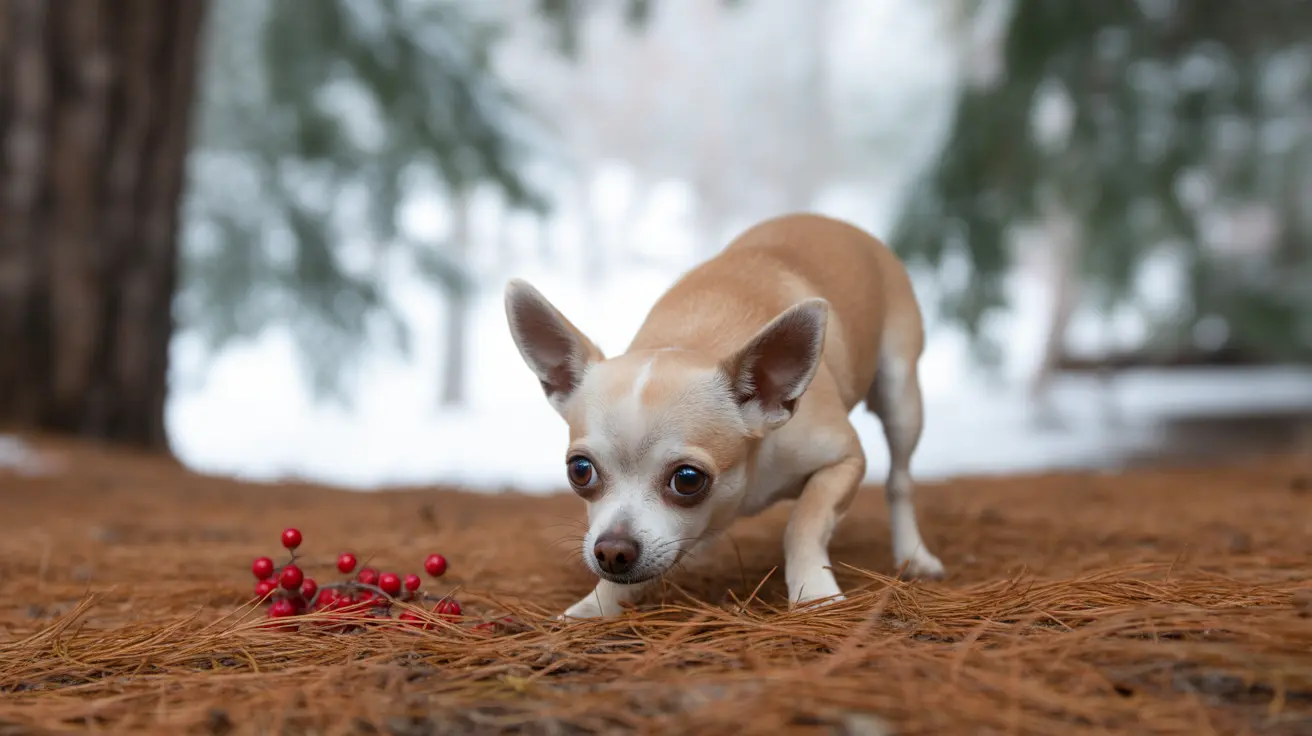As a pet owner, you might wonder about the safety of pine needles around your dog, especially during the holiday season. The short answer is no - dogs should not eat pine needles as they pose several significant health risks. Let's explore why pine needles can be dangerous for your canine companion and what you should do if your dog encounters them.
Understanding these risks is crucial for protecting your pet, whether you have a Christmas tree in your home or frequently walk your dog in pine-filled areas. From physical injuries to potential digestive complications, pine needles present various hazards that every dog owner should be aware of.
Physical Dangers of Pine Needles to Dogs
Pine needles pose several physical risks to dogs due to their sharp, pointed nature. When ingested, these needles can cause immediate damage to your dog's mouth, throat, and digestive system. The rigid structure of pine needles makes them particularly dangerous, as they can:
- Puncture or scratch the mouth and throat
- Cause internal injuries throughout the digestive tract
- Create blockages in the stomach or intestines
- Become lodged between teeth or in the gums
Even if your dog doesn't swallow the needles, chewing on them can lead to oral injuries and infections that require veterinary attention.
Digestive System Complications
When dogs ingest pine needles, they often experience significant digestive issues. The indigestible nature of pine needles can lead to severe complications, including:
- Gastrointestinal obstruction
- Vomiting and diarrhea
- Abdominal pain and discomfort
- Loss of appetite
- Lethargy
In severe cases, surgical intervention may be necessary to remove blockages caused by accumulated pine needles in the digestive tract.
Chemical Risks and Toxicity
Beyond physical dangers, pine needles contain natural compounds that can be harmful to dogs. These include:
- Oils and resins that may cause mild toxicity
- Terpenes that can lead to gastrointestinal upset
- Sap that might trigger allergic reactions
- Essential oils that could cause irritation
While severe poisoning from pine needles is rare, the combination of chemical irritants and physical dangers makes them particularly hazardous for pets.
Prevention and Safety Measures
To protect your dog from pine needle-related injuries, consider implementing these preventive measures:
- Regularly clean up fallen needles around natural Christmas trees
- Use pet barriers to block access to pine trees
- Consider artificial alternatives during the holiday season
- Supervise outdoor activities in pine-rich areas
- Train your dog with "leave it" commands
Frequently Asked Questions
Can dogs safely eat pine needles, or do they pose health risks?
No, dogs cannot safely eat pine needles. They pose significant health risks including physical injury to the digestive tract, potential blockages, and mild toxicity from natural compounds in the needles and sap.
What symptoms should I watch for if my dog ingests pine needles?
Watch for vomiting, diarrhea, lethargy, loss of appetite, excessive drooling, pawing at the mouth, and signs of abdominal pain. If you notice any of these symptoms, contact your veterinarian immediately.
How should I treat my dog if they have chewed or swallowed pine needles?
Contact your veterinarian immediately for guidance. Don't attempt to induce vomiting unless specifically instructed by a professional, as this could cause additional injury from the sharp needles.
Are pine needles from artificial Christmas trees dangerous to dogs too?
Yes, artificial pine needles can also be dangerous. While they don't contain toxic compounds, they can cause similar physical injuries and blockages if ingested.
What precautions can I take to prevent my dog from eating pine needles during the holidays?
Keep your Christmas tree in a gated area, regularly clean up fallen needles, supervise your pet around the tree, and consider using deterrent sprays or providing alternative toys to keep your dog occupied.
Remember, if you suspect your dog has ingested pine needles or is showing any unusual symptoms, don't wait - contact your veterinarian right away. Quick action can prevent serious complications and ensure your pet's safety.






